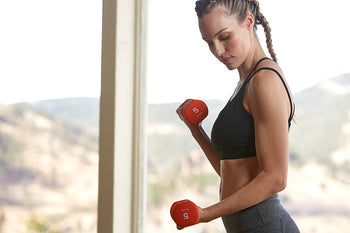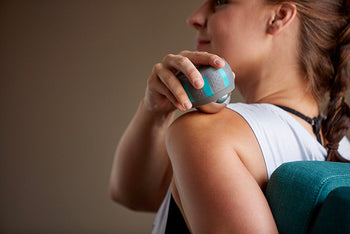7 Non-Drug Asthma Treatments + 5 Herbal Remedies

by James Rouse, N.D.
Asthma is a respiratory disorder characterized by constriction and inflammation of the air passages. Symptoms of asthma include wheezing, coughing, breathing difficulty, and/or tightness in the chest. Asthma may be triggered by allergens (mold, pollen, mites, dust), viral illness, cold air, exercise, or emotional stress. Heredity also plays a role.
Some individuals with asthma may react adversely to certain chemicals or additives in foods, including shellfish, nuts, wheat, dairy products, dietary sulfites used to preserve foods, and certain food colorings such as the yellow dye tartrazine.
Alternative & Natural Asthma Treatments
Asthma sufferers may lessen their need for chemical treatments prescription medications (steroids) and inhalers through lifestyle and dietary changes and nutritional supplements.
- Avoid exposure to cigarette smoke, indoor and outdoor pollution, and common allergens such as dust.
- Avoid food additives and processed foods. The diet should emphasize whole, organic foods as much as possible. Focus on decreasing refined carbohydrates like sugar and heavily processed starches, hydrogenated and partially hydrogenated oils (which interfere with fatty acid metabolism), artificial food additives, flavorings, and sweeteners, fried foods, and pork.
- Avoid nitrates/nitrites and sulfites. Many asthma patients are sensitive to these substances and should avoid foods containing such additives. This may include deli meats and cheeses, hot dogs, bacon, wine, and beer. Individuals who know they are sensitive to sulfites may benefit from supplements of both vitamin B12 and the mineral molybdenum. Both help in the oxidation and metabolism of sulfites and may help decrease an inflammatory reaction to sulfite exposure. In addition, vitamin B12 deficiency has been linked to some forms of asthma.
- Include a balance of aerobic exercise, resistance training, and stretching or yoga in your workout routine. Try to avoid exercising in cold, dry air, and always warm up with at least 10 minutes of lower-intensity exercise. Stress management techniques including biofeedback and meditation are recommended.
- Supplement with omega-3s. Fish oil and flaxseed oil, both excellent sources of omega-3 fatty acids, may help decrease inflammation.
- Get plenty of antioxidants through diet or supplements. They decrease free radical activity, which tends to stimulate inflammation. This includes vitamins A, C, and E, quercetin, bioflavonoids (hesperidin and rutin), N-acetyl cysteine (NAC), and bromelain. Bromelain, which comes from the stem of pineapple, is an enzyme that when taken without food, has powerful anti-inflammatory effects.
- Try taking magnesium, which has a bronchodilating effect. Magnesium stores have been shown to be low in individuals with asthma.
Also talk to your doctor about herbal remedy for asthma treatments, including:
- Ma Huang (also known as Ephedra), Coleus Forskholii, Lobelia, Reishi mushroom, and Glycyrriza (Licorice). Ma Huang should only be used under the supervision of a physician as it may cause an increased heart rate and/or irritability. It acts as a bronchodilator to open constricted airways.
- Coleus Forshkholii contains the active ingredient forskolin, which also acts as a bronchodilator. It is to be avoided if the individual with asthma is also on anticoagulant medication or on medication for high blood pressure.
- Lobelia is another powerful but potentially toxic herbal medicine. It should be used in small doses and under the care of a knowledgeable herbalist and/or physician. Lobelia should not be used by individuals with high blood or known heart disease.
- Reishi mushroom is a strong anti-inflammatory and immune building herb. In Chinese medicine, Reishi is reported to help strengthen the lungs. If you can find whole Reishi mushrooms, they can be used in foods; otherwise you can use Reishi in the form of a concentrated herbal tincture.
- Glycyrriza helps soothe the respiratory passages and also helps to balance and strengthen the adrenal glands. This herb should also not be used by individuals with high blood pressure.
None of the herbs mentioned here should be used by pregnant or nursing women.
Also in Blog

Body Peace & Personal Empowerment

Yoga for Swimmers: Poses for Strength and Mobility







